

Our first issue of 2023 is all about people: a researcher doing important work in Ukraine, a student enjoying a research exchange, a celebration of women in science, profiles of two new researchers, and more, including our regular features.
We hope you enjoy these stories:
- Heartbreak and hope: SCI rehabilitation in Ukraine
- Celebrating women in science
- Five months on exchange in Cleveland
- Work Integrated Learning program launched at PARC
- Meet ICORD’s newest researchers: Dr. Jasmin Ma and Dr. Brett Hilton
- Indigenous Summer Student program accepting applications
And these regular features:
горе і надія
Heartbreak and hope: SCI rehabilitation in Ukraine
 Dr. Andrei Krassioukov keeps thinking about the 29-year old Ukrainian soldier with complete paraplegia who he met last month at Ukraine’s new national spinal cord injury (SCI) rehabilitation centre. Despite being entirely separated from his family—who are living in an area under siege in another part of the country—and with a vastly uncertain future ahead of him, he is dedicated to his rehabilitation. He’s already learned how to use a wheelchair, has started teaching himself wheelchair archery, and is taking time to encourage his peers in their own rehabilitation. Dr. Krassioukov is full of admiration for his resilience.
Dr. Andrei Krassioukov keeps thinking about the 29-year old Ukrainian soldier with complete paraplegia who he met last month at Ukraine’s new national spinal cord injury (SCI) rehabilitation centre. Despite being entirely separated from his family—who are living in an area under siege in another part of the country—and with a vastly uncertain future ahead of him, he is dedicated to his rehabilitation. He’s already learned how to use a wheelchair, has started teaching himself wheelchair archery, and is taking time to encourage his peers in their own rehabilitation. Dr. Krassioukov is full of admiration for his resilience.
Dr. Krassioukov—or Dr. K., as he’s known to his patients and colleagues—is a Principal Investigator at ICORD. He holds an endowed research chair, is a professor in the UBC Department of Medicine and is an attending physician in the SCI Program at GF Strong Rehabilitation Centre. He just returned to Vancouver after spending three weeks as part of the World Health Organization (WHO) Rehabilitation Team working in the Rivne Oblast province in western Ukraine.
In the Fall of 2022, Dr. K. answered a call for SCI specialists, especially those who speak Ukrainian or Russian, to join a team being assembled by the WHO to help to establish a new Ukrainian national spinal cord injury rehabilitation centre for military personnel injured during the war. Dr. K., an international expert in SCI rehabilitation who also speaks fluent Russian, applied, and was accepted. He joined the interdisciplinary WHO team of three physicians, two occupational therapists, a physiotherapist, a nurse, and a psychologist from Canada, the United Kingdom, Norway, Sweden, Italy, and Australia.
 It took three days for Dr. K. to travel from Vancouver to Rivne Oblast via Toronto, Warsaw, Rzeszów, and Lviv, by air, bus, and WHO shuttle. Once there, he worked as a physician in the hospital. He did rounds, met with patients and clinicians, participated in examinations and trained hospital personnel on how to conduct neurological evaluations of individuals with SCI according to established guidelines (ISNCSCI). He also provided training sessions on managing bladder & bowel after SCI, as well as the life-threatening cardiovascular dysfunction is known as autonomic dysreflexia.
It took three days for Dr. K. to travel from Vancouver to Rivne Oblast via Toronto, Warsaw, Rzeszów, and Lviv, by air, bus, and WHO shuttle. Once there, he worked as a physician in the hospital. He did rounds, met with patients and clinicians, participated in examinations and trained hospital personnel on how to conduct neurological evaluations of individuals with SCI according to established guidelines (ISNCSCI). He also provided training sessions on managing bladder & bowel after SCI, as well as the life-threatening cardiovascular dysfunction is known as autonomic dysreflexia.
While many of his day-to-day experiences were similar to life as a rehab doctor in Canada, some parts were distressingly different—especially treating patients who had experienced horrific multi-trauma battlefield injuries, unlike anything he has seen in Canada, with injuries to multiple parts of their bodies in addition to the spinal cord.
One important aspect of rehabilitation medicine in Canada and the US is to work with patients to develop goals for future life in the community: where will they live? What kind of work can they do? What modifications might be needed in their homes? This is challenging in Ukraine. “These are young men who don’t have homes. Their homes are under siege or have been totally destroyed. This is one of the most challenging and heartbreaking situations I have faced. I can give recommendations for how to manage some physical challenges, but how will they get adjusted to their community? I don’t know. This uncertainty adds a whole extra layer of complication on top of physical rehabilitation,” said Dr. K.

Almost every hour he would receive an alert on his phone warning of potential incoming bombs, some with orders to seek immediate shelter. He was amazed at the capacity of ordinary Ukrainian people to carry on with life—going to work, taking their children to school, eating at restaurants—while under this constant threat. “It was most unsettling. I learned a lot about bombs,” he said. Luckily, so far, the hospital has been far away from the action.
Dr. K is going back to the hospital in March to continue with the project. He’s planning to work with physicians and hospital administration to help define inclusion and exclusion criteria for admission, as well as translate some important clinical guidelines for the management of acute SCI into Ukrainian and provide education on how to appropriately use the guidelines. He will also provide training on assistive technologies and sexual dysfunctions following SCI.
He is looking forward to returning to Rivne Oblast, despite the multitude of complexities involved, because the work he is doing is important, and deeply appreciated. “Everywhere we went, we were welcomed with warmth,” said Dr. K. “And everyone we met—shuttle drivers, translators, hospital administration and medical staff—was generous with their time.” He is also heartened by the significant support provided to the national rehabilitation hospital by all levels of government in Ukraine.
Currently, the hospital is focused on military casualties, but Dr. K. believes that the “perfect combination” of dedicated medical personnel in the hospital, strong support of the local and national administrations, and help from the WHO Rehab Team will lead to the development of a robust national SCI rehabilitation centre in Ukraine to provide care and rehabilitation in the future for any Ukrainian who sustains this devastating injury.
Women in science celebrated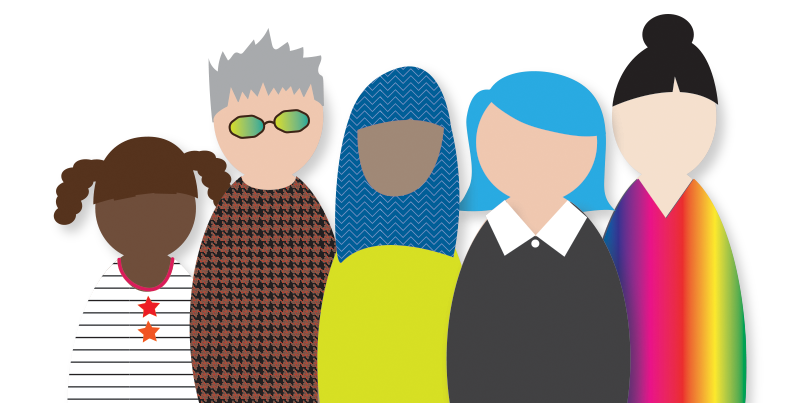
On February 10, ICORD hosted a special event in honour of the UN International Day of Women and Girls in Science.
“Women and girls play a critical role in science, technology, engineering and mathematics communities and their participation should be strengthened. We are underrepresented in these careers and it has a trickle-down impact on the type of research that takes place,” said ICORD Managing Director Dr. Nancy Thorogood in her welcoming remarks.
According to the Canadian Association for Girls in Science (CAGIS), women make up only 23% of science and technology workers and fewer than 4% of trades workers in Canada. Yet science, technology, trades, engineering, and mathematics (STEM) occupations are among the highest-paid and fastest-growing occupations in the country. At ICORD, women make up 44% of Principal Investigators, and many trainees are women.
Girl Guides and the Society for Canadian Women in Science and Technology (SCWIST) both set up information booths at the event, and several ICORD labs ran fun demonstrations and hands-on activities for younger participants.

 |
 |
Five months in Cleveland
by Jocelyn J. Chan
Adam Doelman has been living in Cleveland, Ohio, since October of last year, and not for the history, parks, or the Polka Hall of Fame. Adam is currently on a five-month research exchange with the world-class urology and biomedical engineering departments at the Cleveland Clinic, an academic centre known for its integration of clinical care and research, which consistently ranks as one of the top hospitals in the United States. The clinic has been the site of many medical breakthroughs, including pioneering the first face transplant in the US.
Adam is a Neuroscience Ph.D. student under the supervision of Dr. Brian Kwon. His work involves preclinical testing of UroMonitor, a wireless bladder pressure sensor invented and developed by Drs. Margot Damaser and Steve Majerus at the Cleveland Clinic. After completing preclinical experiments in Vancouver, Adam was able to visit the team in Ohio to contribute to their ongoing clinical trial testing the device in women with multiple sclerosis.
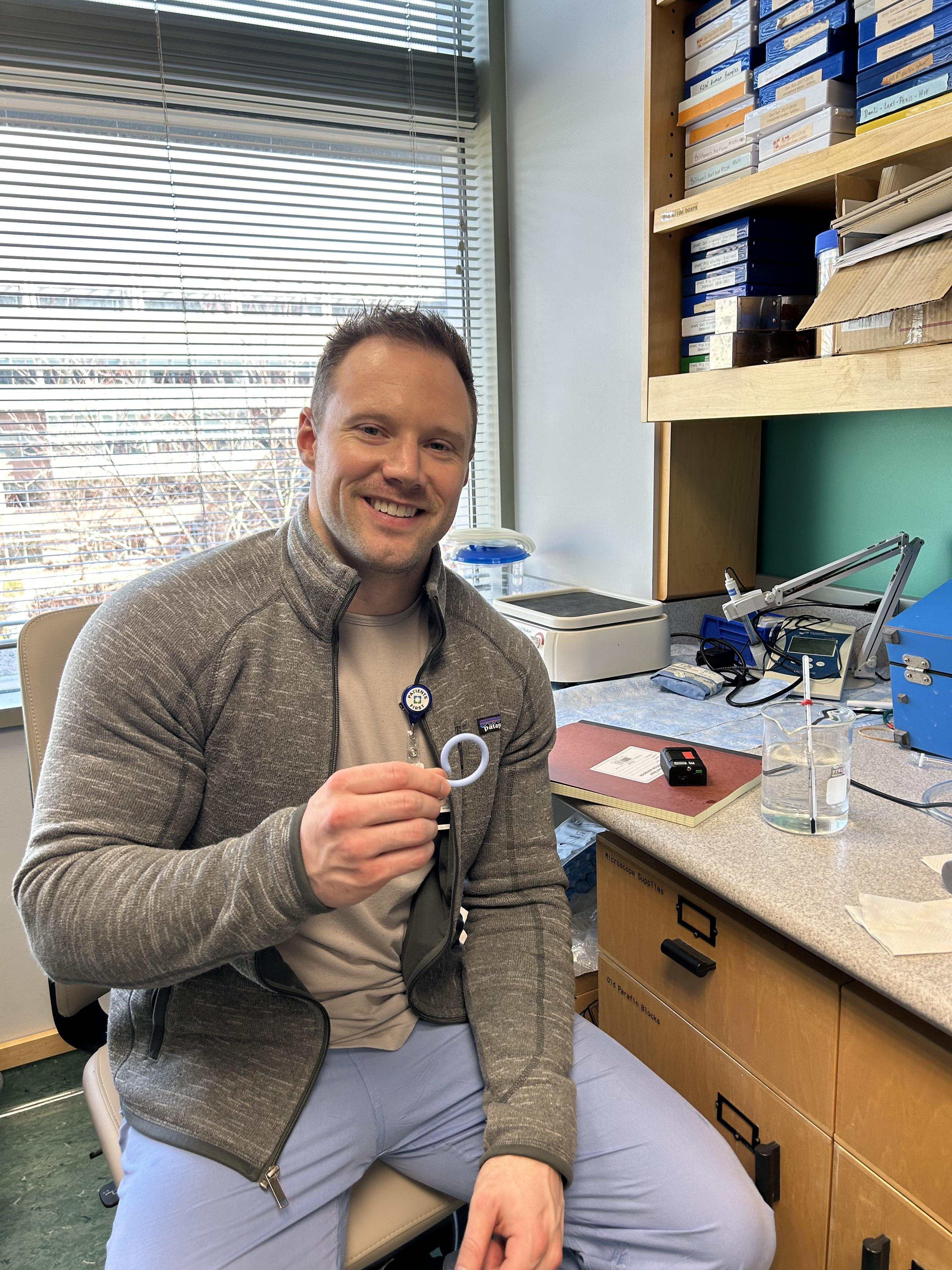
Adam has been collaborating with the clinical team to determine the optimal use of the device in humans and how catheter-free assessment can improve our understanding of human bladder pathology. His most memorable experience thus far has been participating in the first clinical trial experiment involving a woman with MS. “It was really special to see the device we worked so hard to develop and optimize be used in a human patient to help diagnose her dysfunction,” said Adam.
In addition to working with the clinical team, Adam has also had the opportunity to collaborate with the project’s biomedical engineering team. “I have learned so much from this group about the engineering of research tools—such as developing ways to insert the device into male subjects and rigorous benchtop testing. It has made me appreciate all the small steps needed to bring a device like this to clinical deployment,” said Adam.
Adam looks forward to collaborating with the group in the future and plans to incorporate techniques he’s learned into his Ph.D. work. “Besides the experiences working with the clinical and engineering teams, I’ve learned a lot about different ways to analyze and present data which will help when I begin writing the manuscripts and eventually my thesis,” he said.
While not in clinics or labs, Adam has enjoyed sightseeing in Ohio, including attending a Cleveland Cavaliers basketball game with friends. “The Cavs ended up beating Boston in double overtime and we all went downtown afterward. It was cool to see the city so electric after a regular-season win and was certainly something I’ll remember! We also stopped at Barrio for tacos at the end of the night – I definitely recommend checking it out if you’re ever in Cleveland.”
 Adam’s trip was funded by an ICORD International Exchange Award, supported by the Rick Hansen Foundation. The award provides trainees with up to $7,500 in travel costs for unique research opportunities. “Overall, this trip has exceeded many of my expectations, and I am truly grateful to have been given this opportunity,” said Adam.
Adam’s trip was funded by an ICORD International Exchange Award, supported by the Rick Hansen Foundation. The award provides trainees with up to $7,500 in travel costs for unique research opportunities. “Overall, this trip has exceeded many of my expectations, and I am truly grateful to have been given this opportunity,” said Adam.
Photo: Adam in the lab in Cleveland, holding the UroMonitor wireless device.
Work Integrated Learning program benefits PARC
by Jocelyn J. Chan
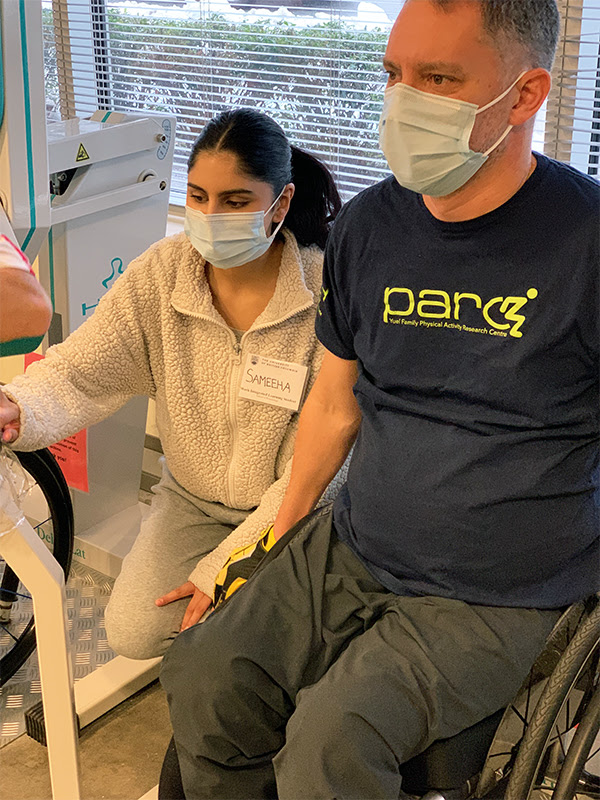 UBC Kinesiology students are now able to get course credits for working at ICORD’s Physical Activity Research Centre (PARC), through the recently-launched Work Integrated Learning (WIL) program. The program offers ten students an opportunity to work with the PARC community beyond the scope of the PARC volunteers. Since its launch in September 2022, the PARC WIL program has received a lot of positive feedback from participants and has proven to be a valuable addition to the PARC community. Led by Dr. Jasmin Ma, students participate in three shifts a week and train with experienced practitioners. The students are then able to provide free one-on-one multi-session exercise prescription and exercise counselling for PARC participants, as well as assist them in achieving their exercise goals. “The WIL program was implemented based on input from PARC community members who identified areas in which the WIL students could help improve the program,” explained PARC’s interim manager, Max Walkes.
UBC Kinesiology students are now able to get course credits for working at ICORD’s Physical Activity Research Centre (PARC), through the recently-launched Work Integrated Learning (WIL) program. The program offers ten students an opportunity to work with the PARC community beyond the scope of the PARC volunteers. Since its launch in September 2022, the PARC WIL program has received a lot of positive feedback from participants and has proven to be a valuable addition to the PARC community. Led by Dr. Jasmin Ma, students participate in three shifts a week and train with experienced practitioners. The students are then able to provide free one-on-one multi-session exercise prescription and exercise counselling for PARC participants, as well as assist them in achieving their exercise goals. “The WIL program was implemented based on input from PARC community members who identified areas in which the WIL students could help improve the program,” explained PARC’s interim manager, Max Walkes.
PARC participants have been impressed by the great work ethic and supportive nature of the WIL students, especially their ability to connect in a knowledgeable and approachable manner. PARC members can look forward to the one-on-one services from WIL students, as well as WIL students joining PARC supervisor roles – both changes which are currently in development.
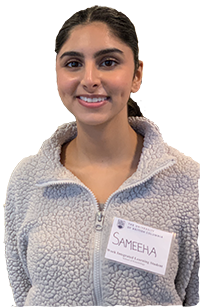 Max is very enthusiastic about the WIL program. “When the program launched in September, all but one of the students were entirely new to PARC. Since then, these students have become valuable members of the PARC community,” he said. With the help of Dr. Jasmin Ma and the PARC staff, the students have acquired the skills necessary to translate their knowledge into practical services for PARC participants.
Max is very enthusiastic about the WIL program. “When the program launched in September, all but one of the students were entirely new to PARC. Since then, these students have become valuable members of the PARC community,” he said. With the help of Dr. Jasmin Ma and the PARC staff, the students have acquired the skills necessary to translate their knowledge into practical services for PARC participants.
The WIL program’s success highlights the importance of providing hands-on learning experiences for students to apply their classroom education in a real-world setting. Not only does this benefit the kinesiology students, but it also provides valuable services to the community at PARC. PARC is excited to see the WIL program’s continued growth and success in the years to come.
Meet our newest researchers
by Jocelyn J. Chan
Dr. Jasmin Ma: champion for physical activity
Dr. Jasmin Ma recently joined ICORD as a new investigator, bringing a wealth of experience and expertise in the field of physical activity and exercise prescription. Dr. Ma is an assistant professor at UBC’s School of  Kinesiology and a Clinician-Investigator at Arthritis Research Canada.
Kinesiology and a Clinician-Investigator at Arthritis Research Canada.
Dr. Ma completed her Ph.D. with Dr. Kathleen Martin Ginis at McMaster (and later, UBCO), and has also previously collaborated with Dr. Chris West at ICORD. She was inspired to return to ICORD and PARC because of “the people and interdisciplinary nature of the research. ICORD houses scientists that span bench to bedside to community. There’s so much opportunity to collaborate and learn from one another.”
As a researcher and practicing kinesiologist, Dr. Ma finds that both roles work in synergy. “I get an opportunity to work with people one-on-one in the community, talking about and doing the thing I love most (after family of course) – physical activity. From these interactions with community members come the best research questions and an opportunity to give back by leading research that addresses community needs.”
Dr. Ma’s research projects include implementing experiential learning opportunities in community-based exercise settings, co-developing knowledge translation tools for clinicians to promote and prescribe physical activity for people with chronic disease and disability, and advancing ways to provide tailored physical activity counselling, particularly for people with arthritis and spinal cord injury.
Leading PARC’s Work Integrated Learning (WIL) program (see previous story) is a dream come true for Dr. Ma. “The vision is a mutually beneficial and sustainable ecosystem where students learn from PARC members and vice versa to support healthy, active lifestyles. We hope to offer more services and support to members to complement the already amazing environment and programs at PARC”
Dr. Ma’s most memorable moment as ICORD (so far) has been “popping into PARC and seeing many of the participants I used to work with years ago, still exercising.”
Outside of academia, Dr. Ma enjoys being active. “I spend my free time almost exclusively moving and eating! You’ll usually find me at the Kits Beach volleyball courts, bike touring with my husband, playing squash, active commuting, or eating doughnuts to balance the caloric deficit.”
Dr. Brett Hilton: returning to ICORD
Dr. Brett Hilton joined ICORD as a principal investigator at the beginning of January. If his name sounds familiar, it’s because he spent several years at ICORD as a Ph.D. student with Dr. Wolfram Tetzlaff. With a diverse background in neuroscience research, Dr. Hilton’s passion for investigating new therapies to promote axon regeneration and function-restoration in spinal cord injury has brought him back to ICORD. “ICORD‘s values as a research centre and my values as a principal investigator are perfectly aligned. ICORD is one of the few places in the world where moving discoveries from the lab bench to the clinic or bedside is really possible,” said Dr. Hilton. “It’s also a fantastic environment to train scientists.”
Before returning to ICORD, Dr. Hilton lived in Bonn, Germany, where he worked as a postdoctoral research fellow in the lab of Professor Frank Bradke at the Germany Center for Neurodegenerative Diseases (DZNE). “I had spent my entire life in Canada prior to that big move to Germany, so it was quite the adventure, both scientifically as well as personally,” said Dr. Hilton.
 Dr. Hilton’s principal research goal is to understand why nerve cells fail to regenerate their processes (axons) following spinal cord injury. He is interested in discovering the fundamental cellular and molecular processes that prevent regeneration and finding clinically relevant ways of targeting these processes in a way that promotes regeneration. “Our work is very multidisciplinary,” he explained. “We are interested in discovering the fundamental cellular and molecular processes that prevent regeneration and finding clinically relevant ways of targeting these processes in a way that promotes regeneration.”
Dr. Hilton’s principal research goal is to understand why nerve cells fail to regenerate their processes (axons) following spinal cord injury. He is interested in discovering the fundamental cellular and molecular processes that prevent regeneration and finding clinically relevant ways of targeting these processes in a way that promotes regeneration. “Our work is very multidisciplinary,” he explained. “We are interested in discovering the fundamental cellular and molecular processes that prevent regeneration and finding clinically relevant ways of targeting these processes in a way that promotes regeneration.”
In the short term, Dr. Hilton’s lab is focusing a lot on Baclofen, an anti-spasticity medication that he discovered promotes axon regeneration. “Because Baclofen is already in the clinic, it holds promise as a safe and clinically feasible way to promote re-growth,” said Dr. Hilton.
Dr. Hilton’s most memorable moment so far as a principal investigator has been recruiting Nicole Janzen as a lab manager, and Duo Cheng as a technician for his lab. “In Nicole’s case, after many years working in the Tetzlaff lab, she came out of retirement to help our lab get off to a good start,” Dr. Hilton explains.
Returning to ICORD as an investigator after having done his Ph.D. with Dr. Tetzlaff has been a full-circle moment for Dr. Hilton. “I discovered my passion for spinal cord injury research when I was working in the Tetzlaff lab, so to come back as an investigator is extremely special for me,” he said. “It takes a village to build a lab, and with Nicole and Duo’s help, we are already equipped to do experiments and to recruit and train trainees. I can’t thank them enough for everything they’ve done for the lab.”
When he’s not working in his lab, Dr. Hilton enjoys spending time with his 16-month-old son and being outdoors running, bicycling, hiking, and skiing. “I have bought into the ‘e-bike’ fad and ride my e-bike from UBC to ICORD most days of the week,” he said. “It has been a wonderful way to get re-acquainted with the city (and the weather!)”
now accepting applications for 2023
by Jocelyn J. Chan
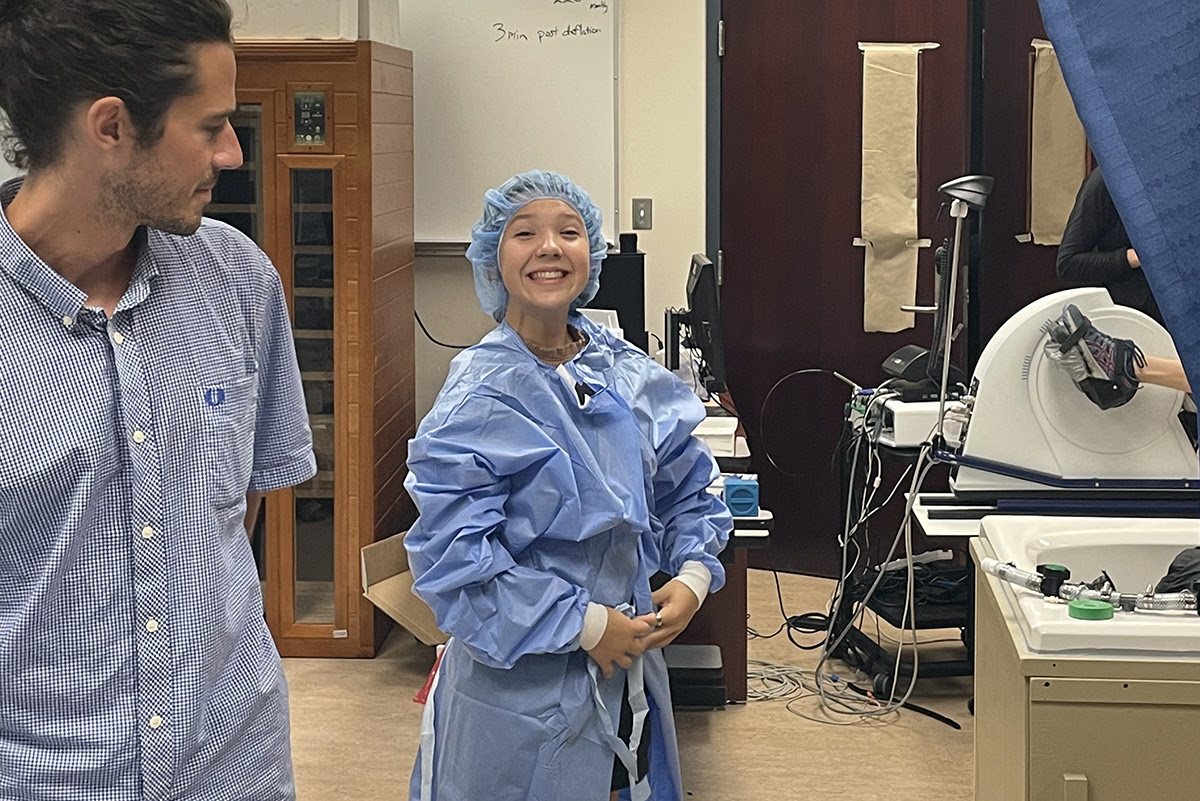
Kelowna summer student Jenna with supervisor Dr. Travis Gibbons of the Ainsley Lab in 2022
ICORD’s Summer Research Program for Indigenous Youth is returning for its fifth year this summer! The goal of this program is to connect local Indigenous high school students with ICORD researchers based in Vancouver or Kelowna for a paid summer research opportunity. This unique experience will allow youths curious about science to delve deeper into their interests in biomedical engineering, neuroscience, spinal cord injuries or research in general. The 6 weeks program runs from July 4 through August 11.
Feedback from the past students and supervisors has been overwhelmingly positive, and we look forward to welcoming more students this year. Read about student experiences in our 2022, 2021, 2020, and 2018 newsletters.
The application deadline is March 31, but early submissions are highly encouraged so we can match students to potential labs that most closely align with their interests. For full details and our registration form, see the program website or email summer@icord.org for more information.
We’re crowdfunding to support this program. Any amount will help pay for student salaries and lab/research supplies. Click here for more details and to make a donation.

ICORD-O labs led by Drs. Christopher West, Kathleen Martin Ginis and Heather Gainforth are excited to welcome new members!
 Dr. Oliver Wearing is a Postdoctoral Fellow in Dr. Christopher West’s lab, affiliated with the Department of Cellular & Physiological Sciences in the UBC Faculty of Medicine. His research aims to develop next-generation radiotelemetry devices (with industry partner Transonic Systems Inc.) that monitor the cardiovascular function of small and large animal models, with the goal that this technology can better enable us to generate safe and effective translational therapies to restore cardiovascular function following SCI. To learn more about the work happening in Christopher West’s lab, read this great news story.
Dr. Oliver Wearing is a Postdoctoral Fellow in Dr. Christopher West’s lab, affiliated with the Department of Cellular & Physiological Sciences in the UBC Faculty of Medicine. His research aims to develop next-generation radiotelemetry devices (with industry partner Transonic Systems Inc.) that monitor the cardiovascular function of small and large animal models, with the goal that this technology can better enable us to generate safe and effective translational therapies to restore cardiovascular function following SCI. To learn more about the work happening in Christopher West’s lab, read this great news story.
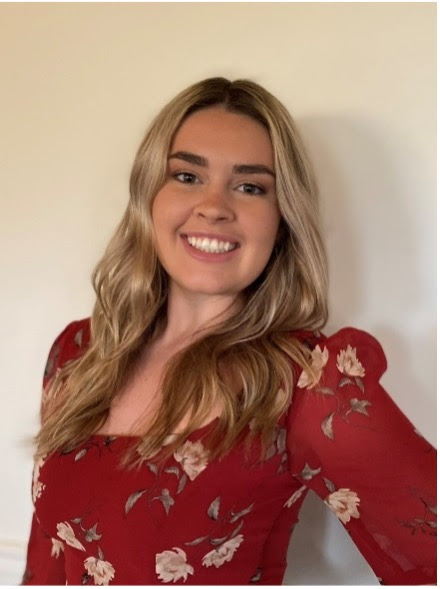
Kierstyn Palmer is a Master’s Student in the SCI Action Canada Lab with Dr. Kathleen Martin Ginis. Her research will focus on investigating mechanisms that govern the relationship between pain improvement and exercise in people with SCI and chronic pain, with a specific interest in inhibitory control and inflammation. Kierstyn’s research will be part of the EPIC-SCI trial. Click here to learn more about the EPIC-SCI trial.

Christina Skinner is a research coordinator in the Applied Behaviour Change Lab, led by Dr. Heather Gainforth. Christina will coordinate a variety of research projects conducted within the ABC Lab, including the IKT Guiding Principles project. She has a specific focus and expertise in communication and knowledge translation. Click here to learn more about the IKT Guiding Principles.
Help us do research
Interested in helping ICORD researchers make SCI preventable, livable, and curable? These research studies (and more) are in need of participants!
Exploring empathy amongst individuals with SCI or TBI
 The purpose of this study is to explore the role of empathy in the daily lives of individuals who have an acquired spinal cord injury (SCI) and/or traumatic brain injury (TBI). Individuals will participate in a phone or Zoom interview.
The purpose of this study is to explore the role of empathy in the daily lives of individuals who have an acquired spinal cord injury (SCI) and/or traumatic brain injury (TBI). Individuals will participate in a phone or Zoom interview.
Heart rate variability and anxiety during urinary bladder catheterization
![]() Intermittent catheterization following SCI is the preferred method for emptying the bladder. However, the experience of intermittent catheterization can be a challenging one, for instance, giving rise to autonomic dysreflexia or feelings of anxiety and stress.
Intermittent catheterization following SCI is the preferred method for emptying the bladder. However, the experience of intermittent catheterization can be a challenging one, for instance, giving rise to autonomic dysreflexia or feelings of anxiety and stress.
Effect of behavioural tasks on capsaicin and mechanical pain
![]() Interested in neurophysiological research? This study investigates the relationship between behavioural tasks and pain from capsaicin cream. Participants should be 19-45 years old with no chronic pain.
Interested in neurophysiological research? This study investigates the relationship between behavioural tasks and pain from capsaicin cream. Participants should be 19-45 years old with no chronic pain.
Opinions on wearable sensors to detect sudden cardiac arrest
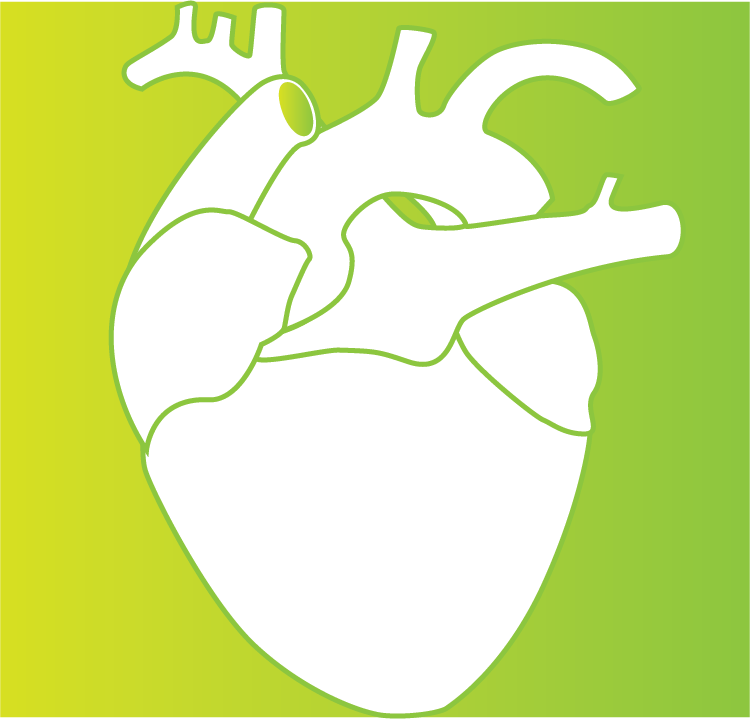 Researchers in Dr. Shadgan’s lab are interested in understanding user compliance to using wearable devices with regards to perceived risk of experiencing a cardiac arrest, and user design preferences in terms of the dimensions and location of a potential wearable device.
Researchers in Dr. Shadgan’s lab are interested in understanding user compliance to using wearable devices with regards to perceived risk of experiencing a cardiac arrest, and user design preferences in terms of the dimensions and location of a potential wearable device.
Click here to browse all the ICORD studies currently recruiting participants.
Interested in participating in ICORD research but feeling overwhelmed by the number of studies?
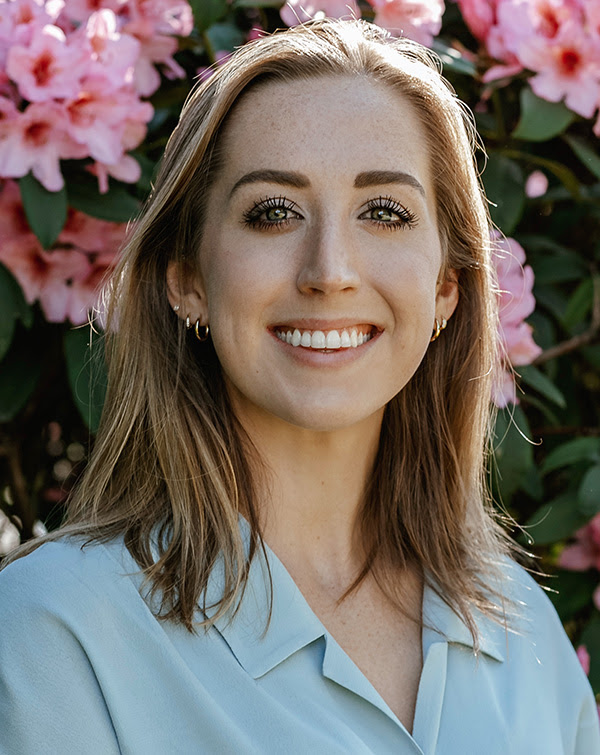 Our Study Liaison is here to help!
Our Study Liaison is here to help!
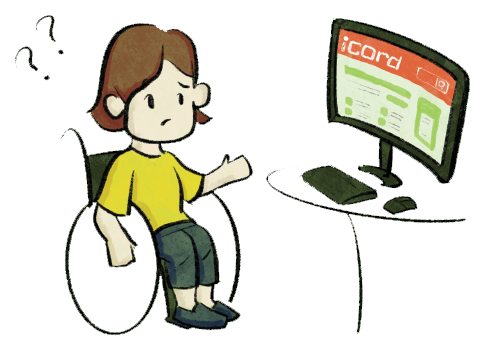 Nicole Bailey will work with you to narrow down what studies you may be eligible for. Over a few short phone calls, she will ask you questions about your research interests as well as common study inclusion and exclusion criteria. From there she will tailor a list of research studies for you and provide details and contact information for each one. She can also directly connect you with study coordinators if you like. Send her an email to begin your consultation!
Nicole Bailey will work with you to narrow down what studies you may be eligible for. Over a few short phone calls, she will ask you questions about your research interests as well as common study inclusion and exclusion criteria. From there she will tailor a list of research studies for you and provide details and contact information for each one. She can also directly connect you with study coordinators if you like. Send her an email to begin your consultation!
Partner news
 Do you work in SCI acute care or rehab?
Do you work in SCI acute care or rehab?
Display a free SCIRE COMMUNITY poster (large and small size available) in patient areas. Please contact Matthew Queree if you would like one. To learn more about evidence-based care for people with SCI and their families, please visit the SCIRE Community website for factsheets.
Rick Hansen Foundation hosts Accessibility Professional Network conference March 1 & 2, 2023
#APN2023 Building Together, presented by Royal Bank of Canada, is dedicated to building a more accessible, inclusive future for people of all abilities. As Canada’s premier conference on accessibility in the built environment, #APN2023 once again brings together thought-leaders, researchers and industry leaders to share ideas and collaborate on solutions for improved accessibility.
Among many topics, #APN2023 will feature sessions on the latest accessibility legislation and codes, including an accessible dwellings standard and the Accessible Canada Act. From disability justice to policy, this conference will help accessibility professionals become leading experts in their field. Featuring an exciting lineup of speakers, this year’s two-day conference provides attendees with an opportunity to participate in meaningful conversations with accessibility professionals from around the globe.
Learn More & Register Today!
 Celebrating women in science
Celebrating women in science
Wednesday, March 8, 12–1 pm on Zoom
Speakers: Dr. Amina Zoubeidi, Dr. Lyndia Wu (ICORD PI), Dr. Mehwish Anwer (Wellington Lab), Katlyn Richardson (Granville Lab)
In celebration of International Women’s Day, join us to hear from female leaders (including three ICORDians!) who are advancing research and innovation in science, technology, engineering and mathematics (STEM) at Vancouver Coastal Health. Hear about important contributions from female researchers in their field of expertise and the experiences that shaped their career paths.
Register here: vchri.ca/womeninscience
 SCI BC is offering a new summer intake of the GRAGOPEAN Scholarship so that more post-secondary students with SCI can take advantage of this opportunity. This fantastic opportunity can be used towards tuition, books and other expenses related to their disability that will support education, such as housing and transportation. The deadline for the Summer 2023 intake is March 15, 2023. More info can be found here.
SCI BC is offering a new summer intake of the GRAGOPEAN Scholarship so that more post-secondary students with SCI can take advantage of this opportunity. This fantastic opportunity can be used towards tuition, books and other expenses related to their disability that will support education, such as housing and transportation. The deadline for the Summer 2023 intake is March 15, 2023. More info can be found here.
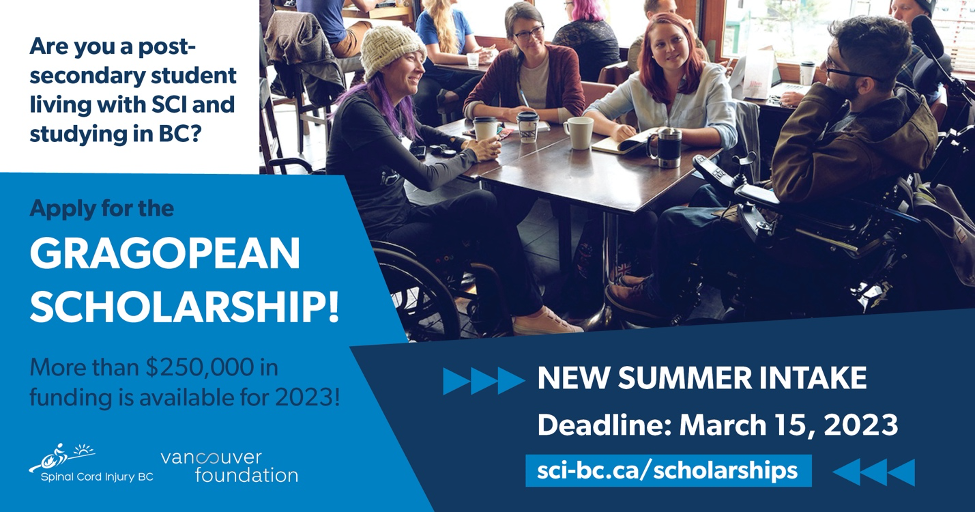
Praxis SCI Incubate
Praxis Spinal Cord Institute is proud to announce the 2023 SCI Incubate Program cohort. Battelle and inContAlert and Focal Lines Technologies (supported by SCI Validate) will be joining the program that helps early-stage startups grow and address care- and cure-related treatments that improve the quality of life for people with spinal cord injury. Throughout the program, the cohort companies have access to mentorship and networking opportunities to help them reach their goals.
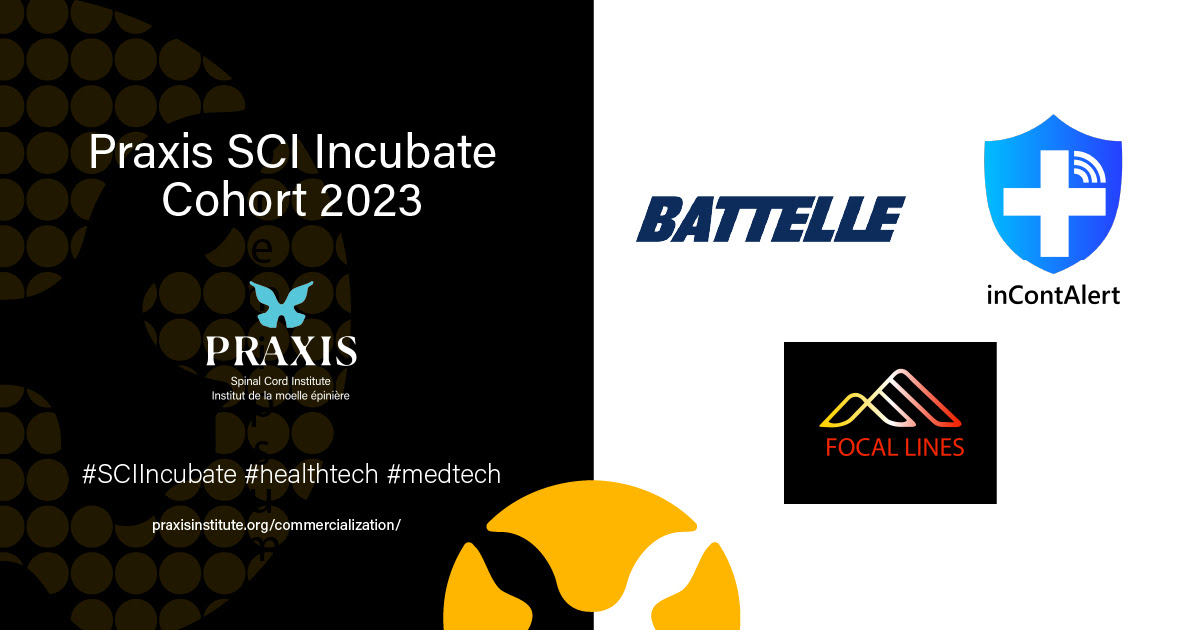
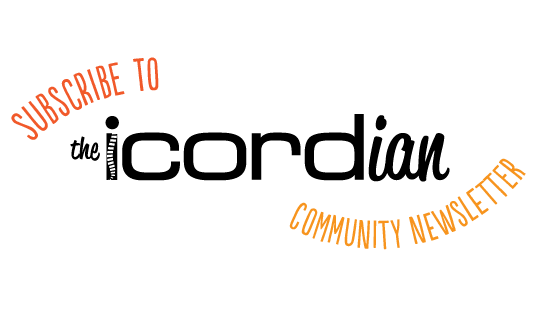 Thanks for reading this issue of The ICORDian – we hope you enjoyed it! Please subscribe and have future issues delivered to your inbox. If you have any comments about this issue or suggestions for future ones, please contact us.
Thanks for reading this issue of The ICORDian – we hope you enjoyed it! Please subscribe and have future issues delivered to your inbox. If you have any comments about this issue or suggestions for future ones, please contact us.
|
Jocelyn Chan, Femke Hoekstra, Andrei Krassioukov, Brett Hilton, Jasmin Ma, Adam Doelman, Maxwell Walkes, Ben Mortenson, Wolfram Tetzlaff, and Katie Ashwel for their contributions to this issue of our newsletter.
|




